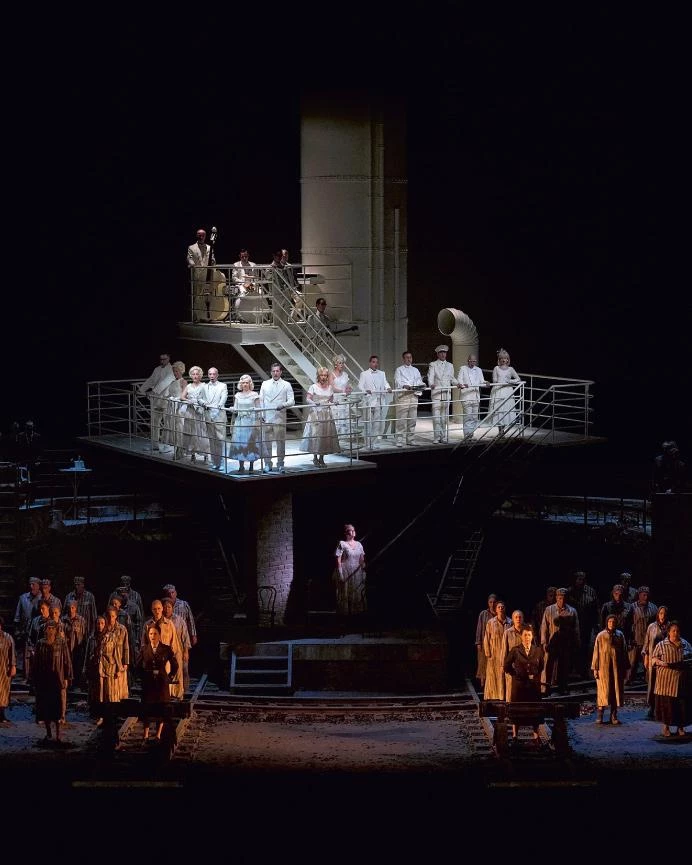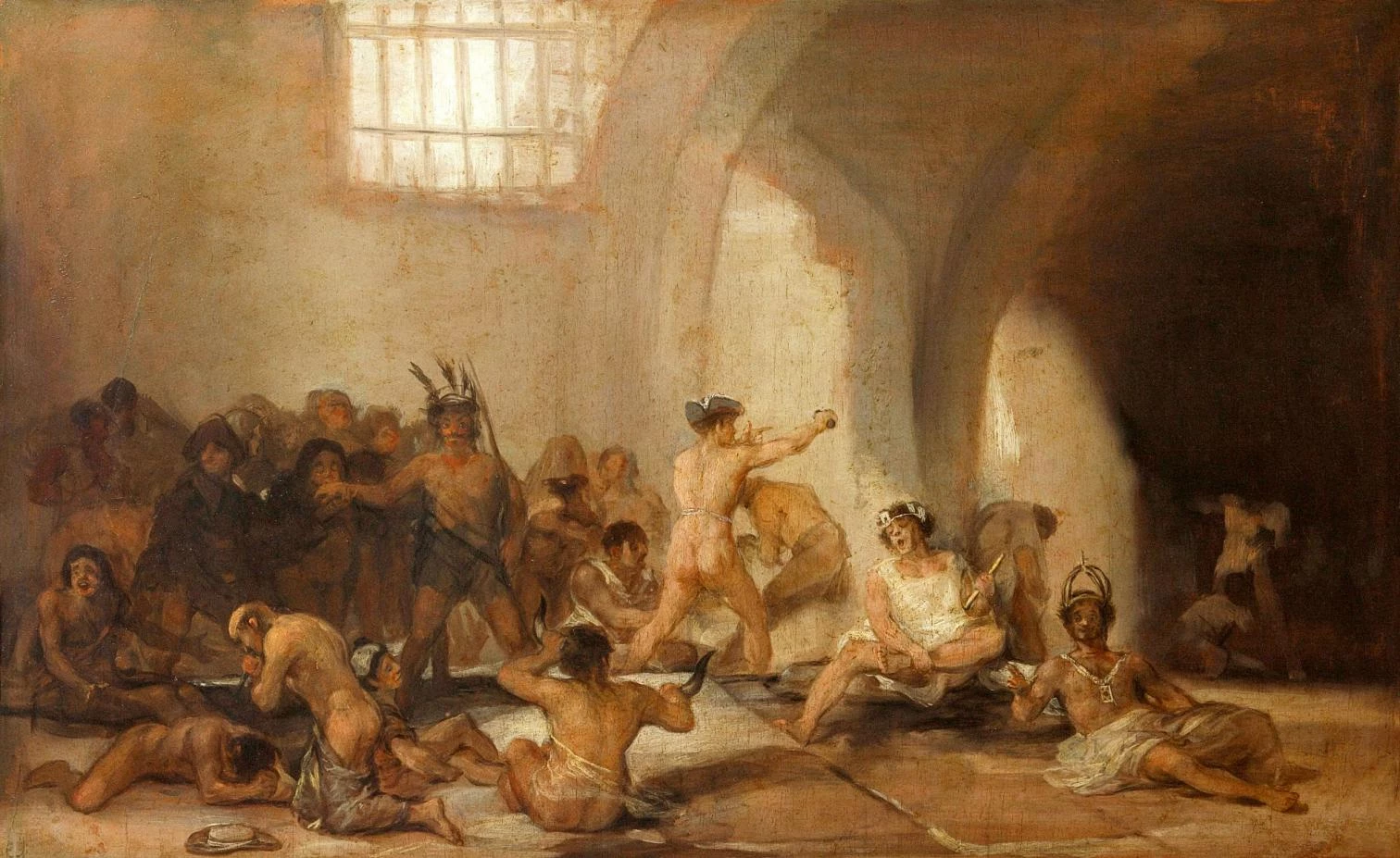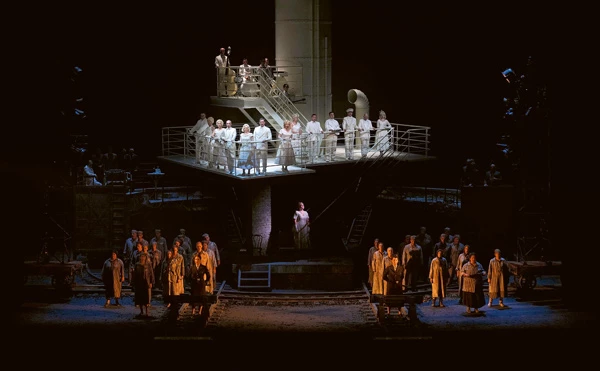
Teatro Real production of Mieczysław Weinberg's opera The Passenger © Javier del Real / Teatro Real
Madrid in March has staged the malaise of memory. The city’s Teatro Real has presented The Passenger, an opera whose characters travel on a ship that carries the remembrance of the horror of the Holocaust; the Royal Academy has inaugurated an exhibition on Goya, ‘The Awakening of Conscience,’ which illustrates with his House of Fools the rebellion of reason in the face of the disasters and follies of the world; and the political institutions have commemorated without agreement the twentieth anniversary of the largest terrorist attack in European history. If it is madness to ignore the memory of Jewish extermination or the cruelty of the Napoleonic wars, it is no less so to dismantle the legacy of those who built bridges to hatch the Spanish Transition under the long shadow of the Civil War. The Academy’s exhibition includes Goya’s melancholy portrait of Jovellanos, an enlightened reformist who promoted education and science as drivers of progress, after all a wise man in a deranged time.
The humanist Sebastian Brant published in 1494 Das Narrenschiff, and this ‘Stultifera Navis’ illustrated by Dürer and evoked by Hieronymus Bosch went from satire to allegorical drama with Ship of Fools, the 1962 novel by Katherine Anne Porter and the film based on it that Stanley Kramer released in 1965, where a transatlantic ship sails from Mexico to Germany in 1933 taking first-class passengers and also deportees crowded on its lower deck. In Mieczysław Weinberg’s opera, whose libretto by Alexander Medvedev adapts a novel by Zofia Posmysz that had already inspired a film by Andrzej Munk in 1963, the vessel travels from Germany to Brazil in 1959, and the uncertain encounter beween a jailer and a survivor of Auschwitz allows a contrast between the white aesthetic of the ship, a metaphor of modernity, and the dark lower levels where the sinister memories of the extermination camp unfold, with a brownish light evoking the interiors of the asylums for lunatics painted by Goya.
While The Passenger closes with the sentence ‘Never forgive them,’ the drama awarded with the Oscar for best international film, The Zone of Interest, tackles Auschwitz from a different angle, because instead of condemning the executioners and their unforgivable guilt it challenges us with the voluntary blindness of those who choose not to see the horror or its victims. Jonathan Glazer’s film, based on a novel by Martin Amis, shows the life of camp commandant Rudolf Höss and his family right by the precinct walls and under the smoke of the oven’s chimneys, and the triviality of absolute evil is even more tragic than the depiction of crime. The opera assembled with the music and the story of two Polish Jews, a disciple of Shostakovich and an Auschwitz survivor, fills us with retrospective anger; but the placid flow of the perfect days of the Höss family brings us before the tragedy of the Palestinians in Gaza or the immigrants in the Mediterranean, who are on the other side of a wall of indifference, while with eyes shut we continue sailing on an amnesic and demented ship.
El Mundo. La casa real de La zona de interés: un paraíso con vistas a Auschwitz

Francisco de Goya, House of Fools, 1808-1912







